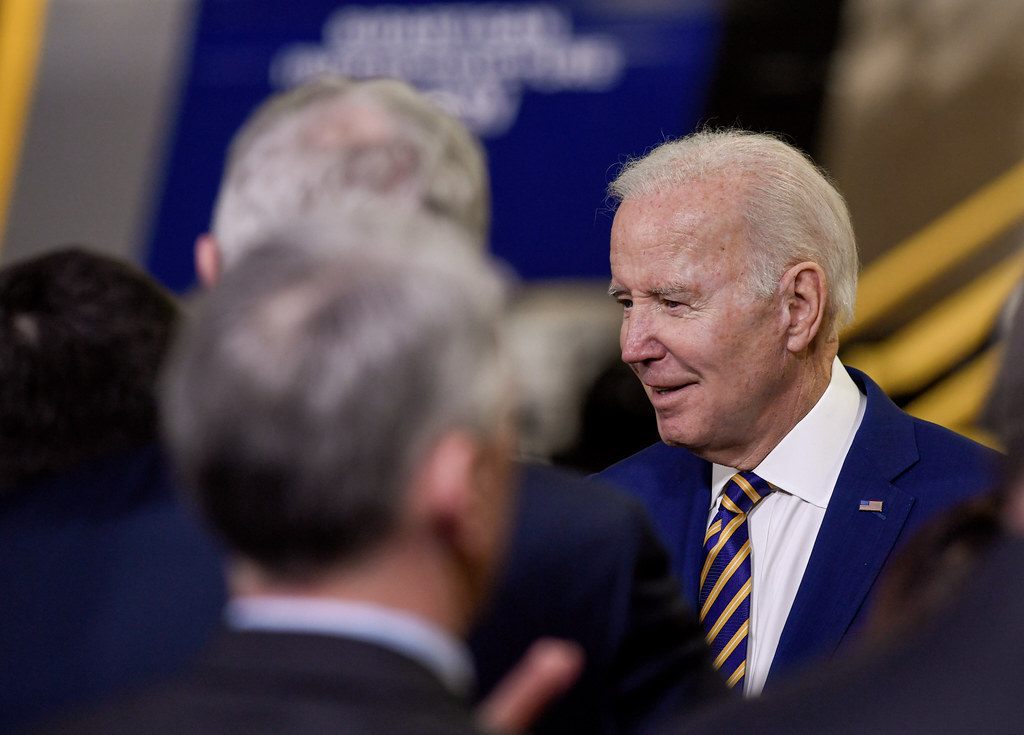The Biden Administration has introduced a renewed challenge for a proposed open-pit mine in a remote area of Alaska. The discovery revealed that the road essential for the project’s progression could have more profound implications for the Alaska Native communities and their way of life than what meets the eye.
Since October 24, 2023, the analysis from the Interior Department hasn’t constituted the final verdict on Ambler Road, a project of significant environmental concern within the state. However, it deals a blow to the intended 211-mile transportation corridor, initially designed to traverse one of the nation’s largest roadless territories and intersect the Gates of the Arctic National Park. This corridor was meant to facilitate the mining company’s access to an estimated $7.5 billion in copper reserves located north of the Arctic Circle.
The road right-of-way was initially sanctioned during President Donald Trump’s presidency, but the Biden administration made the decision to suspend it last year for the “significant deficiencies” in the previous environmental assessment, thereby demanding additional scrutiny.
The prior version of this evaluation has now identified 66 communities that could potentially be affected by “subsistence-style” living activities, a significant increase from the 27 communities identified in the 2020 analysis. Nearly half of these communities may confront considerable repercussions due to the road. Furthermore, the review updates the potential impacts of the road on even the caribou and fish.
The supplemental analysis asserts that “subsistence use would be altered by the presence of a road, both because a road would affect wildlife behavior and because it would bisect travel routes used by hunters and affect their access to subsistence use areas.”
The analysis goes on to emphasize that all road proposals would fragment wildlife habitat, leading to disruptions in caribou and other animal movements and migrations, largely because of vehicle noise. Especially considering the existing stress on caribou because of other forms of development and climate change, the road could negatively impact their calving and survival rates.
Alaska’s state director for the agency expressed that this review was conducted with extensive input from the discussions with Alaska Native groups. He noted the importance of continued public engagement to ensure a comprehensive analysis of the potential impacts of the proposed road.
While these findings are not defensive, they successfully underscore the concerns about a project that faces opposition from many environmental organizations and some even from within the administration. The administration is expected to release a final analysis and decision sometime in the spring of 2024.
Executives at the mining venture Ambler Metals are currently planning to review the findings, as reported by the company in a statement. It is said that the project is an urgent necessity for supplying domestic minerals that can support U.S. national security and clean-energy technology to address climate change.
Ramzi Fawaz, the company’s chief executive, noted in a statement that “Ambler Metals and our partners are confident we can address any issues raised. This project has been unnecessarily bogged down in federal bureaucracy for years and I urge the Department of the Interior to avoid any further delays.”
In contrast, the new review has drawn frustration from mining advocates primarily due to the fact that it takes into account potential impacts from public road use, even though the current proposal doesn’t include public access. The conclusion that, “public use and trespass are reasonably expected” has raised concerns among the public.
This project has garnered some local support, but remains a top priority for the national park’s advocates to express their disapproval. The road to the mine site would cross 11 major rivers and numerous streams, disrupting the unspoiled tundra and caribou migration paths. Additionally, it would cross 26 miles of Gates of the Arctic National Park and Preserve, coming close to Kobuk Valley National Park.
The National Parks Conservation Association (NPCA) opposes the Ambler Road, urging the Biden administration to choose the “No Action Alternative” to protect the pristine landscape and traditional ways of life set into the history of over 60 Alaska Native Tribes. The region, the Brooks Range in Northwest Alaska, spans 16 million contiguous national park acres. It hosts the Western Arctic Caribou Herd, herding 180,000 animals, and a 2,700-mile annual migration. Such a proposal to construct a road granting private access for international mining companies ultimately contrasts with such a kept environment.
The proposed Ambler mining road is now the subject of increased attention and worries, with the final decision coming in the spring carrying a significant weight.Importantly, the Supplemental Environmental Impact Statement (SEIS), has made it clear that the Ambler mining road is incompatible with a healthy future for the people, wildlife, and national parks of Northwest Alaska.








Cmorgan • Dec 1, 2023 at 1:03 pm
As usual Biden and supporters are out of touch with Alaskans. We are not one big national park. There are actually many people here who rely on and need living wage jobs. Stop playing politics with our people. I am a life long Native American born here
Karmen Monigold • Nov 29, 2023 at 5:55 pm
The caribou herd is down to 152,000 now. AIDEA goes around telling the upper Kobuk villagers they will have lower costs of goods, fuel etc and for the village of Ambler whose gas is $15 per gallon that does sway some but not all! Many still oppose the road and would rather pay those prices than to risk their subsistence way of life. Many in our region still rely heavily on our wild animals, bird, fish and plants. The potential toxins that could float down the major rivers would be catastrophic for our regions. Our marine mammals the bearded and spotted seals could be affected if toxins get into the Kobuk river and eventually reach the Kobuk delta where the young seals congregate before freeze up because of the shelter and abundance of food. This had the potential to wipe our culture off the map.